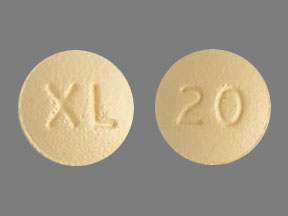Cabometyx Disease Interactions
There are 8 disease interactions with Cabometyx (cabozantinib).
- Hemorrhagic events
- GI perforation
- Hepatic impairment
- Hypertension
- Renal impairment
- RPL syndrome
- Thromboembolism
- Lung toxicity
Cabozantinib (applies to Cabometyx) hemorrhagic events
Major Potential Hazard, Moderate plausibility. Applicable conditions: Bleeding
Fatal hemorrhagic events have been reported with the use of cabozantinib. Therapy with cabozantinib is not recommended in patients that have or are at risk for severe hemorrhage.
Cabozantinib (applies to Cabometyx) GI perforation
Moderate Potential Hazard, Moderate plausibility. Applicable conditions: Gastrointestinal Perforation, Diverticulitis
Therapy with cabozantinib should be used with caution in patients who may be at increased risk for gastrointestinal perforation, such as those with a history of diverticulitis. Patients presenting with new onset of abdominal symptoms should be evaluated promptly for early identification of gastrointestinal perforation. It is recommended to monitor for symptoms of gastrointestinal perforation or fistula periodically throughout the treatment. Discontinue cabozantinib in patients who experience a fistula which cannot be appropriately managed or a GI perforation.
Cabozantinib (applies to Cabometyx) hepatic impairment
Moderate Potential Hazard, Moderate plausibility. Applicable conditions: Liver Disease
Increased exposure to cabozantinib has been observed in patients with mild to moderate hepatic impairment. It is recommended to reduce the cabozantinib dose in patients with mild or moderate hepatic impairment. The use of cabozantinib is not recommended in patients with severe hepatic impairment. It is recommended to monitor liver function and urine bilirubin tests periodically during therapy.
Cabozantinib (applies to Cabometyx) hypertension
Moderate Potential Hazard, Moderate plausibility.
The use of cabozantinib causes hypertension. Blood pressure should be well-controlled prior to initiating cabozantinib and monitored and treated as needed with standard anti-hypertensive therapy. It is recommended to reduce the dose in case of persistent hypertension despite use of anti-hypertensive medications and to discontinue therapy if hypertension is severe and persistent despite these measures. Discontinue cabozantinib therapy for severe hypertension that cannot be controlled with anti-hypertensive therapy and if there is evidence of hypertensive crisis or severe hypertension despite optimal medical management. Close monitoring is recommended.
Cabozantinib (applies to Cabometyx) renal impairment
Moderate Potential Hazard, Moderate plausibility. Applicable conditions: Renal Dysfunction
No dose adjustment is required in patients with mild or moderate renal impairment. There is no experience with cabozantinib in patients with severe renal impairment. Care should be exercised in these patients.
Cabozantinib (applies to Cabometyx) RPL syndrome
Moderate Potential Hazard, Moderate plausibility. Applicable conditions: Posterior Reversible Encephalopathy Syndrome
Reversible posterior leukoencephalopathy syndrome (RPLS) has been reported in patients receiving cabozantinib. It is recommended to discontinue therapy in patients developing RPLS. The safety of reinitiating therapy in patients previously experiencing RPLS is not known. Care and close monitoring should be considered in these patients.
Cabozantinib (applies to Cabometyx) thromboembolism
Moderate Potential Hazard, Moderate plausibility. Applicable conditions: Thrombotic/Thromboembolic Disorder, Myocardial Infarction
Arterial and venous thromboembolic events have been reported with the use of cabozantinib. Use with caution in patients who are at risk, or have a history of these events. It is recommended to monitor closely for signs and symptoms of thromboembolism. Discontinue cabozantinib in patients who develop an acute myocardial infarction or any other arterial thromboembolic complication.
Multikinase inhibitors (applies to Cabometyx) lung toxicity
Moderate Potential Hazard, Moderate plausibility. Applicable conditions: Interstitial Pneumonitis, Pulmonary Impairment
The use of certain multikinase inhibitors has been associated with pulmonary toxicity. Serious cases of interstitial lung disease (ILD), including fatal cases and interstitial pneumonitis or pulmonary fibrosis have been reported. Caution is recommended when using these agents in patients with a history of interstitial pneumonitis or pulmonary fibrosis or those patients presenting with acute onset of new or progressive unexplained pulmonary symptoms such as dyspnea, cough, and fever pending diagnostic evaluation. If ILD is confirmed, these agents should be permanently discontinued and appropriate measures should be instituted. Treatment should be immediately withheld in patients diagnosed with ILD/pneumonitis and permanently discontinued if no other potential causes of ILD/pneumonitis have been identified.
Switch to professional interaction data
Cabometyx drug interactions
There are 539 drug interactions with Cabometyx (cabozantinib).
Cabometyx alcohol/food interactions
There are 2 alcohol/food interactions with Cabometyx (cabozantinib).
More about Cabometyx (cabozantinib)
- Cabometyx consumer information
- Check interactions
- Compare alternatives
- Pricing & coupons
- Reviews (12)
- Drug images
- Side effects
- Dosage information
- Patient tips
- During pregnancy
- FDA approval history
- Drug class: multikinase inhibitors
- Breastfeeding
- En español
Related treatment guides
Drug Interaction Classification
| Highly clinically significant. Avoid combinations; the risk of the interaction outweighs the benefit. | |
| Moderately clinically significant. Usually avoid combinations; use it only under special circumstances. | |
| Minimally clinically significant. Minimize risk; assess risk and consider an alternative drug, take steps to circumvent the interaction risk and/or institute a monitoring plan. | |
| No interaction information available. |
See also:
Further information
Always consult your healthcare provider to ensure the information displayed on this page applies to your personal circumstances.


